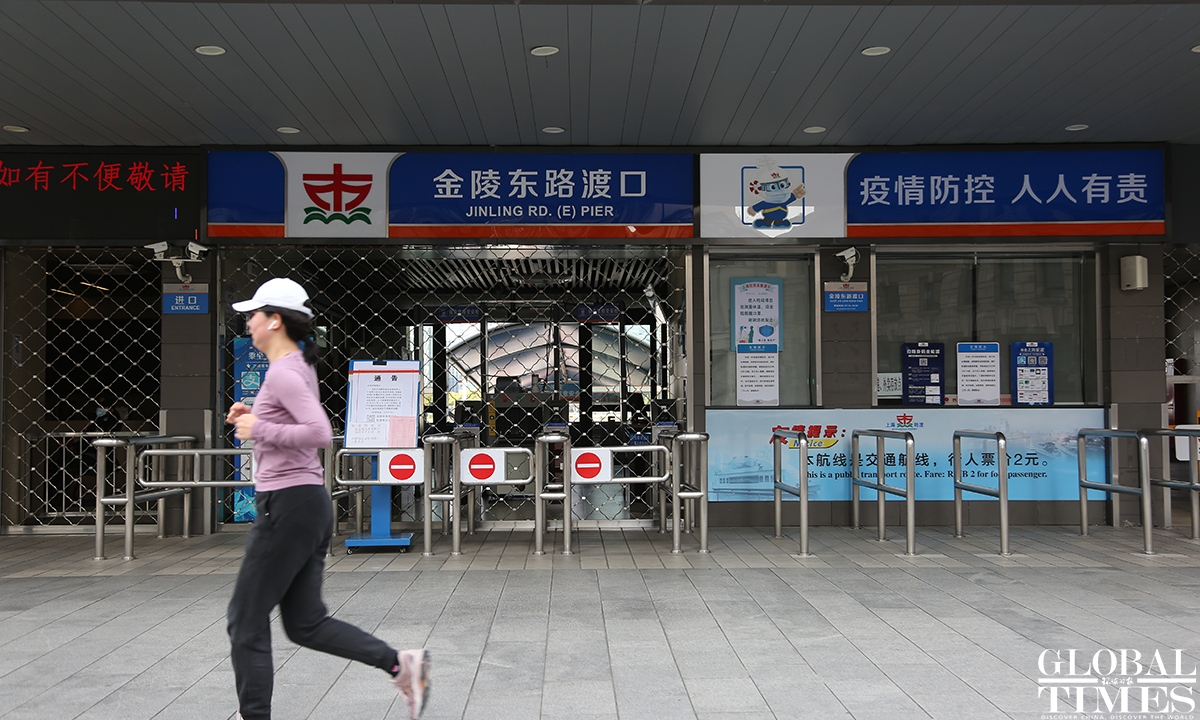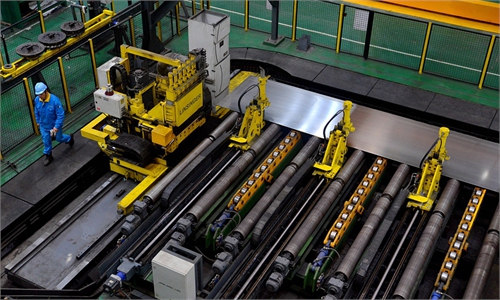
The ferry to Pudong stops operation. Photo: Shi Liu
Activity in China's services sector fell sharply in April due to the expanding negative impact of the resurgence of COVID-19 flare-ups across the country, according to a latest survey released by financial news outlet Caixin on Thursday.
Caixin's services Purchasing Managers' Index (PMI) fell to 36.2 in April, compared with 42.0 in March, below the 50-point mark that separates growth from contraction on a monthly basis. It was the lowest level in over two years.
"The index reflected the ongoing pressures on the country's economic recovery amid the impact of the domestic epidemic and geopolitical uncertainty," Dong Dengxin, director of the Finance and Securities Institute of the Wuhan University of Science and Technology, told the Global Times on Thursday.
The contraction of supply and demand in the services sector deepened. In April, the services industry business activity index and new orders index continued to fall below the 50-point mark, both recording the lowest levels since March 2020.
According to the surveyed enterprises, tightened anti-epidemic measures restricted business activity, while closed-loop management and travel restrictions severely affected demand.
Major cities in China, including Beijing and Shanghai, have deployed strict anti-COVID-19 policies in a bid to reduce community transmission.
The bulk of surveyed firms said that due to the virus, customers in the catering and accommodation sectors had been significantly reduced.
Meanwhile, the continuous contraction of overseas demand hit export orders. In April, the index of new export orders of the services industry decreased to the lowest since May 2020.
Further weakening of supply and demand in the services sector weighed on employment in the industry. The services employment index in April fell slightly from March, and it was in contraction for the fourth consecutive month. Surveyed firms said that due to the epidemic, they cut recruitment to reduce costs.
Input prices of the services industry continued to rise, resulting in further increases in cost pressures on enterprises. As energy and raw material prices are still running high, and epidemic prevention and control measures have increased operation costs, and the sector's input index remained above the 50-point mark in April.
However, sluggish market demand due to the epidemic forced companies to cut sales prices, causing the price index to contract for the first time in nearly eight months, hitting the lowest level since May 2020.
Despite the ongoing outbreaks, the expectations index improved in April but remained below its long-term average. Some surveyed firms believed that output will pick up once the epidemic is brought under control, while others were still concerned about the long duration of epidemic controls.
Factory activity was also severely restricted in April amid the COVID-19 resurgence, with the Caixin manufacturing PMI falling to 46.0 from 48.1 in March.
Both the services and manufacturing indexes dragged the Caixin composite PMI to 37.2, the lowest since March 2020.
Wang Zhe, a senior economist at Caixin Insight Group, said that in April, the outbreak disrupted national logistics networks as well as supply chains. The impact on the services industry was even greater than the manufacturing sector and inflationary pressures remained.
The government should enhance support for enterprises that are badly affected by the epidemic, including using financial tools like tax and fee cuts to stabilize market expectations, Dong added.


